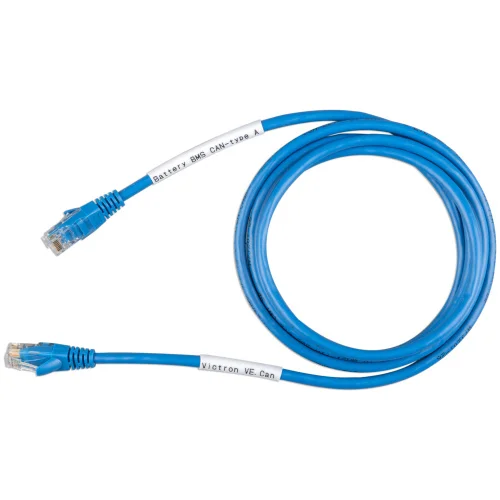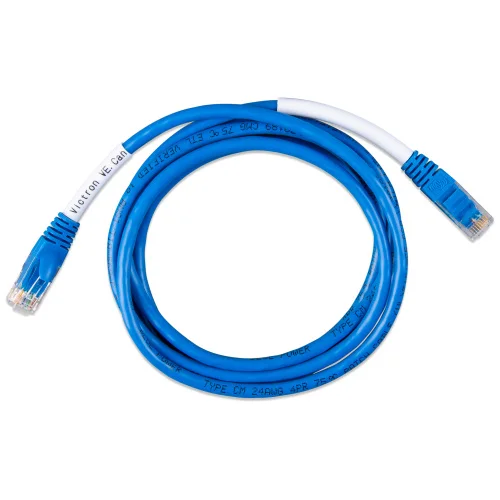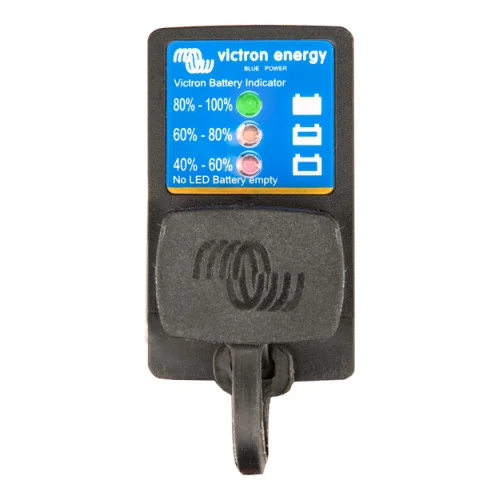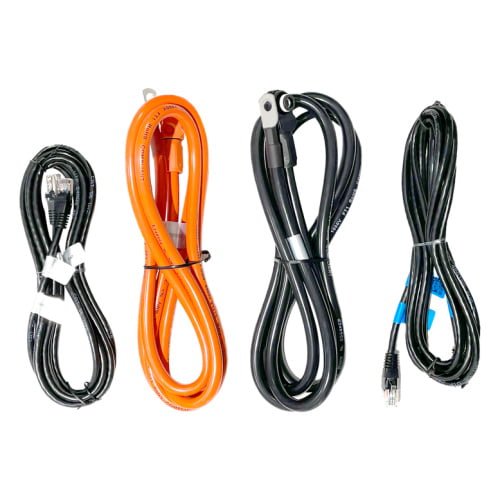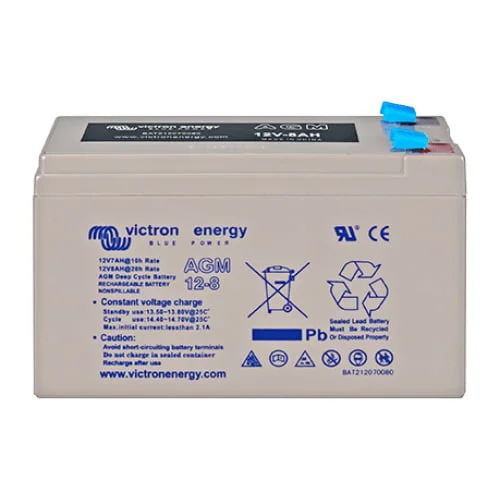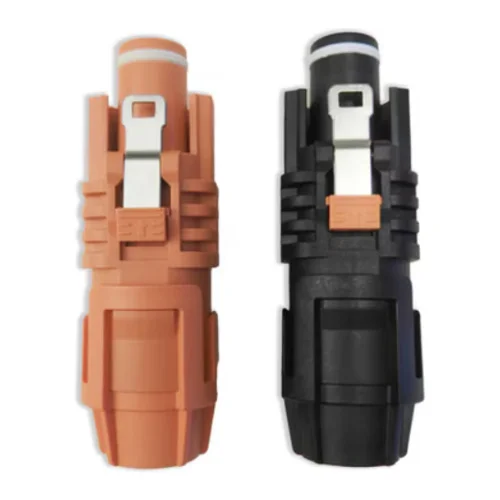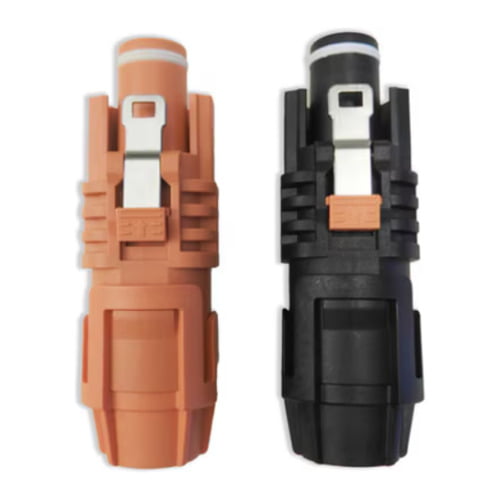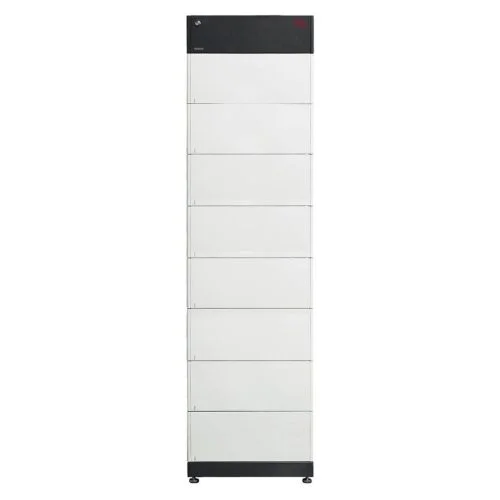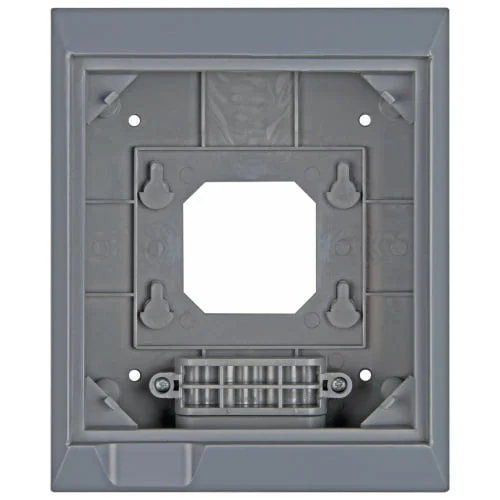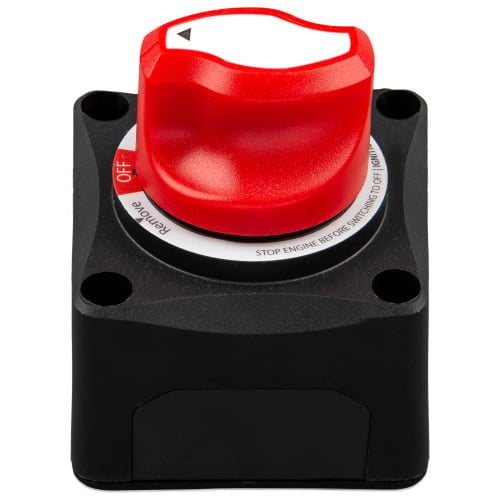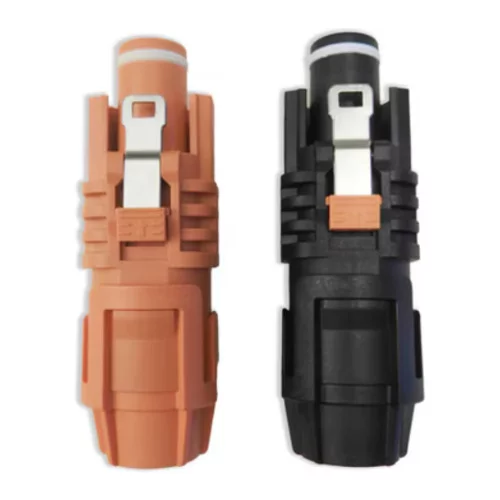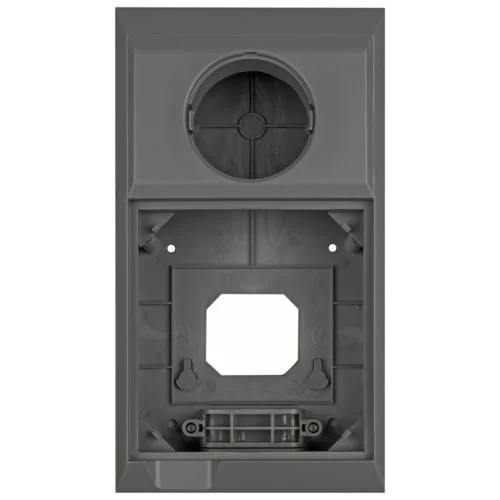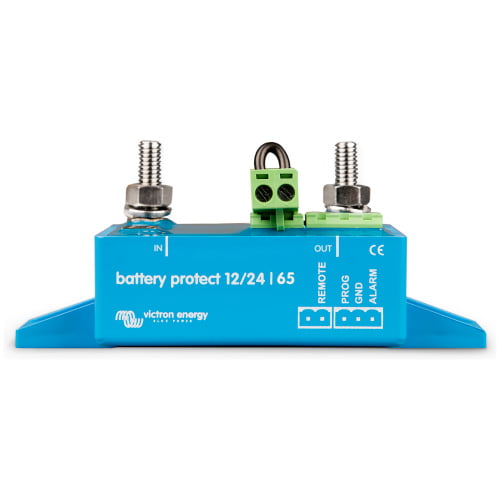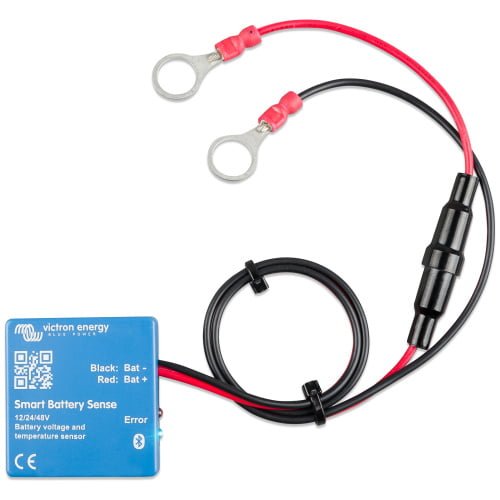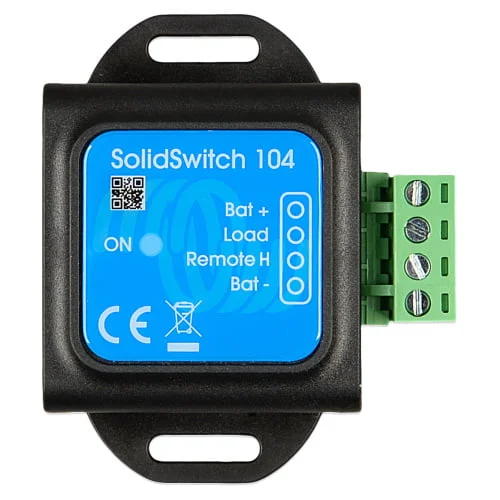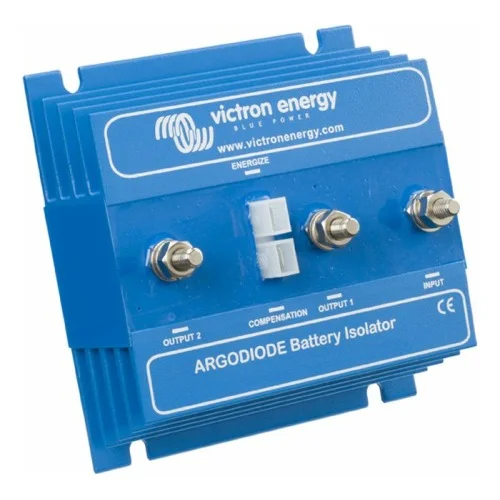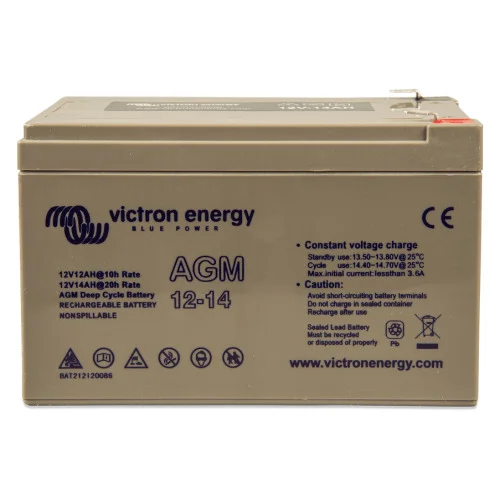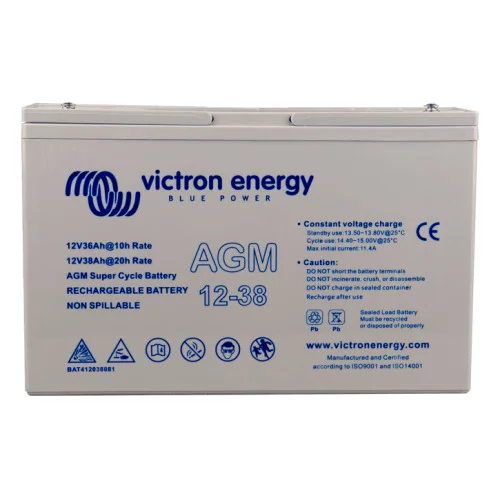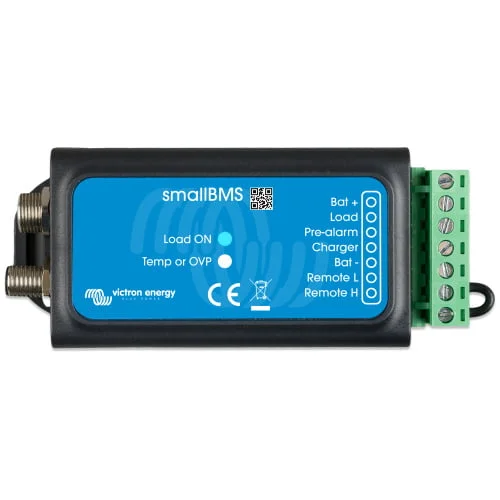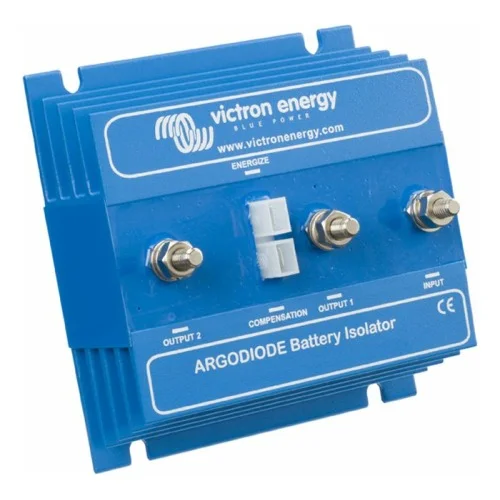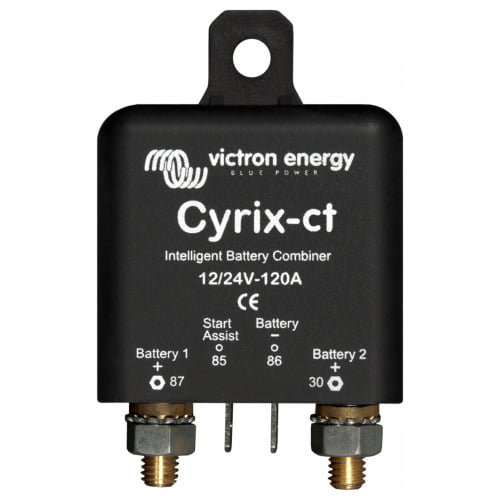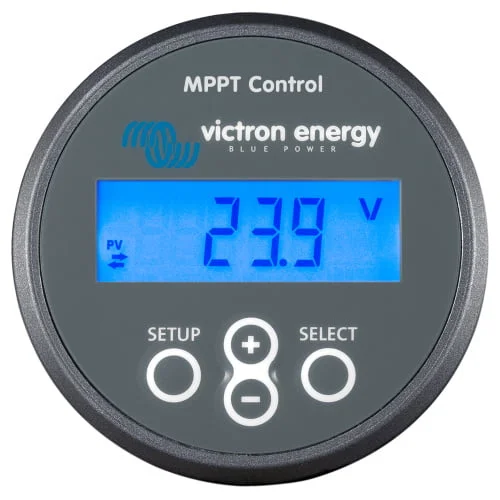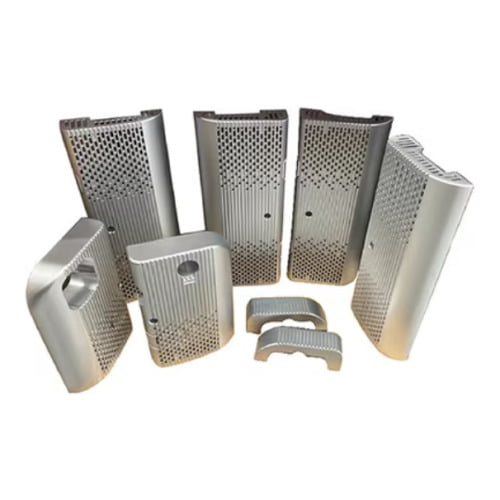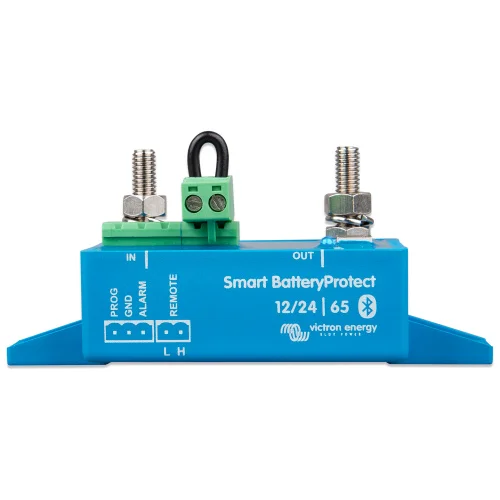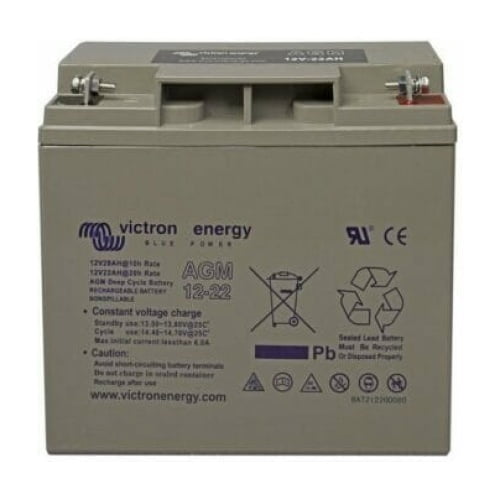- Envío gratuito a península a partir de 300€
Baterías
Las baterias para placas solares son un componente fundamental en cualquier instalación de placas solares que requiera de almacenamiento de la energía que producen los paneles solares. Esto permite consumir dicha energía posteriormente, siendo una forma de autoconsumo.
Las baterías solares pueden utilizarse tanto en una instalación fotovoltaica aislada de la red y producir nuestra propia energía, como en un kit solar autoconsumo y así ahorrar aún más en nuestra factura de luz.
En FVComponentes.com encontrarás baterías solares de diferentes voltajes (12V, 24V, 48V y de alto voltaje), que se adecuarán a las dimensiones de tu instalación. Además tenemos diferentes tipos de baterías: baterías AGM, baterías GEL, baterias CARBONO y baterias de litio.
Encuentra tus baterias para placas solares al mejor precio en FVComponentes.com. En nuestra web podrás encontrar baterías para placas solares de distintos tipos y aptas para cualquier tipo de instalaciones solares. Contáctanos en comercial@fvcomponentes.com y te asesoraremos.
-
Bateria de litio HV BYD Battery-Box Premium HVM 22.1kWh
Desde 9.789,24€
¿Qué son las baterías solares?
Las baterias solares son capaces de almacenar la energía que proviene de las placas solares en forma de energía química para producir energía eléctrica. En las baterías para paneles solares este ciclo puede repetirse un determinado número de veces, las baterias de descargas profundas lo pueden repetir muchas veces, es decir tienen muchos ciclos de vida útil.
Las baterías solares se usan para almacenar la energía que producen los paneles solares para ser utilizada cuando sea necesaria. Estos acumuladores solares son ideales para el uso nocturno, cuando se producen fallos en la red eléctrica o cuando los paneles solares no producen lo suficiente.
La transformación de energía se repetirá constantemente y dependiendo del uso que se le de, determinará la vida útil de las baterías para placas solares. Una bateria fotovoltaica que con un buen uso y mantenimiento puede llegar a durar unos 15 años. Las baterías para placas solares deben tener energía acumulada para poder utilizarse y se mide en voltios.
El funcionamiento de las baterías solares se basa en el proceso químico de reducción-oxidación (redox). En este proceso uno de los componentes se oxida (pierde electrones) y el otro se reduce (gana electrones). Y así es como se entiende el proceso de las baterías solares.
Para instalar placas solares hay que tener en cuenta si son necesarias o no baterías para placas solares según la instalación y hay que dimensionar correctamente el sistema.
Los kit solar aislada suelen llevar baterías solares para tener energía durante todo el día. El resto de kits, pueden llevar o no baterías solares, según las características de la instalación.
En FVComponentes.com te ofrecemos las baterías para placas solares de mayor calidad y que mejor se adaptan a tus necesidades. Contamos con una amplia variedad de baterías solares y de varios modelos de paneles solares. Nuestras baterías para placas solares están pensadas para todo tipo de kits solares y tenemos precios más competitivos del mercado.
¿Cuál es el precio de las baterías para placas solares?
El precio para la compra de una batería para placas solares varía según diferentes factores:
Baterías para placas solares precios: ¿Qué influye?
- Voltaje: En el sector fotovoltaico existen baterías solares de 6V, de 12V, de 24V, de 48V y de Alto voltaje.
- Tecnología: Baterías de plomo abierto, AGM o GEL, estacionarias y baterías solares de litio.
- Dimensión: El tipo de batería depende del tamaño de la instalación fotovoltaica
A esto, se puede sumar el precio de un inversor cargador. Los inversores cargadores activan la función de cargador cuando la batería solar está a mínimo de tensión. Estos equipos son muy rentables porque cumplen con una doble función: transforman la corriente continua en corriente alterna para su uso doméstico y actúan como cargador de la batería solar.
En FVComponentes.com encontrarás una oferta variada de baterías solares elaboradas con los materiales de los fabricantes con más prestigio internacional, además nuestras baterías para placas solares cuentan con una garantía de funcionamiento.
Comprar baterías solares
Para seleccionar la batería solar adecuada, tienes que observar el tipo (puede ser plana o tubular) y su tecnología interna (de electrólito líquido o inmovilizado). También hay que dimensionar, es decir, determinar tanto el número de celdas como la capacidad de las baterías para placas solares.
Si ya sabemos que queremos comprar baterías para placas solares y queremos sacarle el mayor rendimiento a nuestro kit solar autoconsumo se debe tener en cuenta:
Aspectos generales de compra para las baterías solares
- Uso: Se debe determinar el uso que se le quiere dar a las baterías solares. Puede ser un uso diario o esporádico en función del tipo de residencia. También hay que tener en cuenta si estas baterías para placas solares serán fijas o portátiles.
- Precio baterías solares: Otro factor importante es el precio de la batería fotovoltaica. Los precios pueden estar entre 200€ para baterías solares AGM y 10.000€ para baterías solares de litio. Las baterías para placas solares de litio puedan ser caras pero se consideran las mejores baterías para placas solares.
- La aplicación: Para determinar si se requiere una baterías solares monoblock, de plomo abierto, estacionaria o de litio.
- La ubicación física: Si se puede o no realizar mantenimiento periódico de las baterías para placas solares.
- Las condiciones ambientales: Instalar en un lugar con temperatura estable y ventilación disponible, teniendo en cuenta que las baterías solares monoblock no emiten gases ni requieren mantenimiento.
- El mantenimiento: Es un factor crucial en la elección de baterías para placas solares. Se deberá elegir el tipo y modelo de batería solar en función del mantenimiento que se le vaya a hacer. Si no se quiere hacer mantenimiento, elegir aquella batería fotovoltaica que no necesite.
- La recarga: En este momento las condiciones de la recarga de las baterías solares son óptimas.
Otro aspecto importante para comprar baterías para placas solares es realizar un buen dimensionamiento. Los parámetros a medir para las baterías solares son:
Baterías para placas solares: Aspectos técnicos para la compra
- La tensión nominal y límites de tensión de las baterías solares adecuadas para el equipo o sistema de alimentación.
- Corriente o potencia de descarga de las baterías solares.
- Duración de la corriente o potencia de descarga de las baterías solares.
- Temperatura media de dónde se van a realizar la instalación de baterias solares.
Algo muy importante para poder dimensionar bien nuestra instalación es seleccionar correctamente la tensión de las baterías solares. De este modo, se consigue alargar la vida útil de las baterías para placas solares lo máximo posible.
El cálculo de la tensión correcta para las baterías para placas solares debe realizarse según el consumo energético de la vivienda. Lo primero, tener en cuenta los consumos de la vivienda con los Wh que consume al día. Para esto es necesario hacer una prueba para comprobar cuál será la tensión correcta de las baterías solares para nuestra instalación fotovoltaica.
Cálculo de la tensión de las baterías solares: Caso de consumo de 3200 Wh/día
Estos 3200Wh/día se dividen entre la tensión que se requiere para las baterías para placas solares. Luego se debe multiplicar el resultado por 2, para que las baterías solares no se descarguen a más de la mitad. El resultado obtenido se debe multiplicar de nuevo por 2 para así obtener el valor correspondiente a 2 días de autonomía de las baterías para paneles solares.
Para un sistema a 12V: 3200/12= 266.67 x 2 = 533.33 x 2 = 1066.67 Ah
Nos sale una capacidad muy elevada.
Para un sistema a 24V: 3200/24= 133.33 x 2= 266.66 x 2= 533.33 Ah
Un kit solar aislada de estas características es una capacidad acorde.
Para un sistema a 48V: 3200/48 = 66.67 x 2 = 133.33 x 2 = 266.66 Ah
En esta última opción aunque se reduzca la capacidad de las baterías solares, puede que sea incluso demasiado. Con el sistema a 24V podemos funcionar bien y la inversión será menor.
Analizando estos puntos con unos consumos como los que se han planteado, solo hay que elegir la opción de baterías solares de 12V si los consumos trabajan a este voltaje. La opción más adecuada para esta instalación de 3200 Wh/día es una tensión de baterías solares de 24V, ya que la de 48V es demasiado. La tensión de 48V en baterías para placas solares sería interesante si se prevé una ampliación de la instalación.
Baterías para placas solares ¿Cuáles son las mejores?
Según cada instalación, se necesitará un tipo de baterías solares u otro. Se deberán valorar aspectos como el tamaño de la instalación, el precio, la ubicación, el uso que se le va a dar,…
Dentro del catálogo de baterías solares podemos encontrar: AGM, GEL, CARBONO y de litio.
Baterías solares: ¿Cuál elegir?
Las baterías AGM no presentan mantenimiento ni desprenden gases tóxicos porque el electrolito va sellado entre capas de fibra de vidrio lo que además la convierte en una batería para placas solares resistente a derrames y se adapta al espacio disponible. Son unas de las baterías solares más populares del sector fotovoltaico por su calidad, precio y rendimiento.
Las baterias GEL son perfectas para instalaciones de tamaño pequeño y mediano. Estas baterías para placas solares tienen durabilidad y una elevada garantía. Estas baterías solares pueden llegar a aproximadamente 800 ciclos de vida realizando descargas de hasta el 70%.
Las baterías estacionarias son una perfecta opción para aquellas instalaciones solares más exigentes debido a su gran durabilidad y su larga vida útil. Sus competitivas características técnicas como la disposición de una amplia gama con una gran relación capacidad-precio frente a otras tecnologías.
Las baterías de litio tienen muchas ventajas. Estas baterías para placas solares tienen una mayor vida útil, ofrecen una mayor densidad energética, ofrecen mayor autonomía en menos espacio y además estas baterías solares se caracterizan porque tienen un proceso de carga mucho más rápido.
Resumiendo, si nos centraremos en la calidad de las baterías solares y sus aplicaciones para instalaciones solares para casa, los acumuladores solares de litio son los que mejor rendimiento ofrecen. El rendimiento de estas baterías solares a la hora de acumular la energía generada por los paneles solares es muy elevado.
Por otro lado, como son las baterías solares que mejor rendimiento ofrecen tienen un precio mayor, pero este tipo de baterías solares ofrecen beneficios inalcanzables para las demás.
Aspectos positivos de una batería solar de litio
- Ocupan hasta un 70% menos de espacio que otros tipos de acumuladores solares.
- Bastante ligeras.
- Carga rápida.
- No tienen efecto memoria, así que no pierden capacidad de carga con el paso del tiempo.
- No necesitan mantenimiento alguno durante toda su vida útil de unos 10 años. Los acumuladores solares de plomo-ácido son más baratos, pero requieren controlar la densidad del electrolito, por ejemplo.
- Resultan mucho menos contaminantes que las demás baterias.
Por todos estos motivos, se podría decir que las mejor opción de batería fotovoltaica son los acumuladores de litio. En definitiva, dependiendo de las características de nuestro kit de paneles solares elegiremos unos acumuladores solares u otros.
¿Por qué un acumulador solar para tu sistema fotovoltaico?
Los acumuladores solares maximizan la eficiencia de la instalación fotovoltaica. También son capaces de reducir o incluso eliminar la dependencia de la red eléctrica. Hacer uso de una instalación fotovoltaica con un sistema de baterias es una solución excelente para consumir la energía acumulada en las horas con los precios más elevados. Estas son algunas de las ventajas:
Beneficios de los acumuladores solares
- Almacenamiento de energía solar: Son un dispositivo de acumulación de energía para que se utilice cuando sea necesario, por la noche o en días nublados.
- Fuente de respaldo de emergencia: Por si se da un fallo en la red eléctrica, se puede seguir disfrutando de la electricidad gracias a la energía acumulada en las baterias.
- Independencia energética: En sistemas fotovoltaicos aislados se podrá conseguir la autosuficiencia. Las viviendas que no tienen acceso a la red eléctrica convencional pueden hacer uso de electricidad.
- Ahorro en la factura de la luz: En instalaciones fotovoltaicas con conexión a la red el uso de baterias supone un ahorro de hasta un 90% en la factura de electricidad.
- Reducen el impacto medioambiental: Al utilizar acumuladores solares, se reduce el consumo de combustibles fósiles para poder usar los electrodomésticos de la vivienda.
Estas son solo algunas de las ventajas de tener un sistema de acumuladores con paneles solares. Puedes consultar con FVComponentes.com si deseas saber más información. Nuestros técnicos especializados estarán encantados de asesorarte sin compromiso.
¿Cómo funciona una batería?
El funcionamiento de las baterias solares se basa en un proceso de captación de energía, almacenamiento de la misma y su uso.
Así es el paso a paso de una bateria solar
- Captación de radiación solar: La radiación del sol llega a los paneles solares.
- Generación de energía: Durante las horas de sol, los paneles solares generan energía para que la vivienda pueda hacer uso de sus consumos.
- Almacenamiento de la energía: Acumulan los excedentes de energía que se producen en los paneles para su posterior uso.
- Uso de la energía almacenada en las baterias solares: Durante la noche, cuando está nublado o llueve, se utiliza la energía almacenada. Con un kit solar híbrido, la energía almacenada podrá consumirse o podrá verterse a la red eléctrica en función de la demanda energética de cada residencia.
Instalación de los acumuladores solares
Cuando realicemos una instalación de placas solares con acumuladores solares, hay que elegir una buena ubicación. Ya que esto determinará parte del buen funcionamiento de los acumuladores solares.
Dependiendo de las características de los acumuladores solares que hemos adquirido, podremos acondicionar el espacio donde los almacenaremos. El espacio de las baterias solares debe protegerlas de condiciones adversas que afecten al funcionamiento estas.
- No deben estar expuestos directamente al sol, a altas temperaturas, a humedad, polvo y suciedad de forma excesiva.
- La ventilación debe ser adecuada para prevenir posibles sobrecalentamientos.
- Hay que respetar una mínima distancia entre los acumuladores solares.
- El espacio donde almacenemos los acumuladores solares debe de ser accesible para realizar el mantenimiento.
Cuando los acumuladores solares estén en su espacio de almacenamiento, hay que proceder a su conexión. Los instaladores decidirán cual es el tipo de conexión de los acumuladores solares que más le conviene y según el modelo se podrá realizar en serie o en paralelo.
Luego se conectan los acumuladores solares al inversor y la instalación ya estaría funcionando. Por último, simplemente habría que realizar una serie de comprobaciones, la configuración y la programación de la gestión de la energía.
Mantenimiento de las baterias fotovoltaicas
Salvo los acumuladores solares de litio, las AGM y las estacionarias OPzV, el resto de las baterias solares necesitan un buen mantenimiento para llegar a la vida útil que especifica el fabricante.
Evitar su exposición a altas temperaturas. Durante su funcionamiento su temperatura aumenta significativamente, deben instalarse en una superficie plana donde no le de radiación solar directa y no tenga altas temperaturas. Y así evitar daños por exceso de calor. Las altas temperaturas aceleran la corrosión de las rejillas de los acumuladores solares y la degradación de los materiales activos mientras su rendimiento aumenta significativamente.
Cuando los acumuladores experimentan bajas temperaturas, tienen menos capacidad de entregar corriente pero la vida útil aumenta. Esto es porque todos los procesos de corrosión interna se hacen más lentos.
Por cada unos 10ºC de aumento de la temperatura ambiente por encima de la recomendada, la vida útil de los acumuladores solares se reduce a la mitad. Por ejemplo, los acumuladores solares que tienen cinco años de duración a 25ºC, solo durará 2,5 años si la temperatura en el ambiente es de 35ºC.
Cumplir con las aplicaciones de uso, los parámetros de cargas y descargas, el mantenimiento y utilización hace que dure el tiempo que el fabricante estima. Si no se usa correctamente la vida útil se suele reducir drásticamente.
Toda degradación acelerada, que reduzca los ciclos de vida o una mala aplicación no será cubierta por la garantía del fabricante. Para mejorar la vida útil se recomienda que la batería siempre esté por encima del 70% de carga.
Nueva normativa de estos dispositivos
La última actualización a nivel normativo de la Unión Europea con respecto al reglamento de los acumuladores y pilas presenta algunas novedades importantes. Se plantean estos cambios para mejorar y reducir los impactos que tienen estos dispositivos en el medio ambiente.
Según la información contenida en el texto aprobado por el Parlamento Europeo, el propósito de este Reglamento es prevenir y disminuir los impactos negativos en el medio ambiente. Se consideran aspectos como la huella de carbono durante la fabricación, el abastecimiento ético de materias primas, la seguridad del suministro y se promueve la reutilización, el reciclaje y la reutilización.
Se pretende mejorar en los siguientes aspectos:
- Sostenibilidad: Se pretende mejorar la sostenibilidad de estos dispositivos desde la obtención de las materias primas hasta la fabricación y su posterior reciclaje.
- Eficiencia energética: Se establecen unos estándares para promover tecnologías más eficientes y menos contaminantes.
- Gestión de residuos: Las nuevas normativas permitirán una gestión más adecuada de los dispositivos cuando lleguen al fin de su vida útil; de esta forma se fomentará la reutilización y el reciclaje.
- Seguridad: Establecer estándares de seguridad con el objetivo de minimizar los riesgos asen su fabricación y uso.
- Etiquetado: Implementar un etiquetado claro para informar a los consumidores sobre la composición y las características medioambientales de estos dispositivos.

